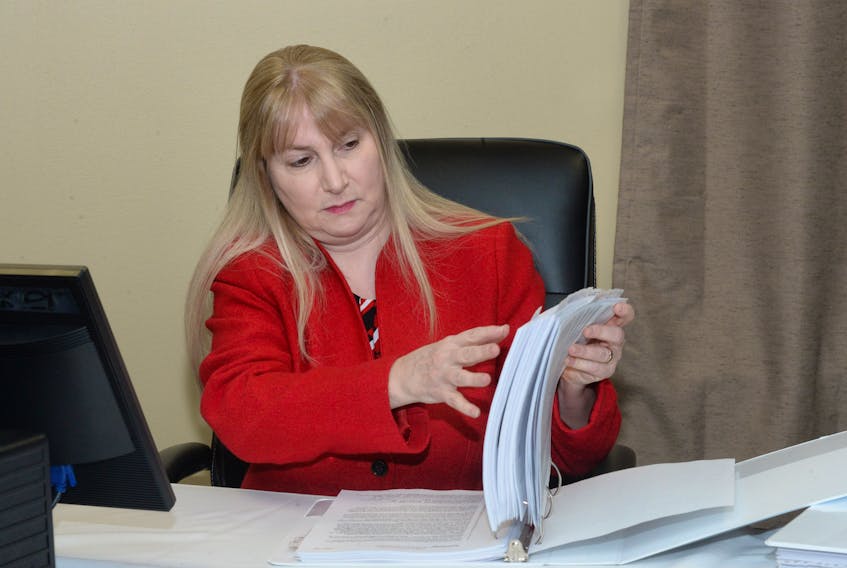ST. JOHN'S, N.L. — The team of government staff sent in to work with Nalcor Energy on the financial agreements for the Muskrat Falls Project had a mandate to get it done, according to Julia Mullaley.
It wasn’t an unconditional and irrevocable direction from the Progressive Conservative government, but it was the direction they had in place.
On the stand at the Muskrat Falls Inquiry Thursday, the auditor general and former clerk of the executive council repeated she believed some government staff, including the financial close team, were aware as the estimated cost of the project at financial close became $6.5 billion (up from the public price of $6.2-billion).
The question remains how government staff could be aware of the change, when both ministers of the day and Mullaley testified they were not.
On cross-examination, Mullaley was asked if her position stands as follows: the financial team were authorized to arrange a $6.2-billion project, but instead closed at $6.5-billion, without any related approval from elected officials.
“Yeah, I guess you can say that — if the premier of the day hadn’t been aware,” she replied, including the caveat.
“So, if the premier was aware, that would be sufficient authorization?,” asked lawyer Justin Hewitt, representing former premier Kathy Dunderdale.

“Well, usually if she was aware, she would bring it back to the colleagues (in cabinet) and it would loop back and close the loop on that,” she replied.
Mullaley testified that never happened. She’s said it wasn’t brought to the cabinet.
Her testimony on that echoed earlier testimony from a trio of former cabinet ministers.
The AG was asked if it’s something civil servants would do — settle something as significant as financial close on a multibillion-dollar megaproject without communicating a material change in cost, or having authorization?
“No, it’s not,” Mullaley said.
She said the team’s actions could be followed by higher ups, down to spreadsheets that detailed tasks still ahead, documents available and needed, and any senior official actions required.
While on the stand, Mullaley was asked why — if she wasn’t aware of the $6.5-billion costing at financial close — she wouldn’t have made it an issue when, in the following year, a question and answer document developed internally stated the government had been aware of the cost change.
“We were at our committee meetings, developing our Q&As, and there was just a sense they had knew about it,” she said, of other government staff.
Since these other people were aware, she said she considered it a factual statement, and didn’t think to make an issue of it.
She reiterated she personally didn’t know, “but they seemed all to know and I was gone for a couple of days at the time.”
She didn’t see a need at the time to explore that further.
Several staffers, who have since left government, are expected to shed further light on the issue when they are called to the witness stand. Donna Brewer, Paul Morris and Paul Myrden are scheduled to be called June 17 (subject to change).
Meanwhile, Mullaley was also asked by more than one lawyer about why there wasn’t more of an effort or action to independently verify Nalcor Energy’s estimates and assumptions before financial close was reached at the end of 2013, or soon thereafter, when the government’s oversight committee was first formed.
Her responses addressed the work of deputies, Finance staff, and Nalcor’s responsibilities. She also said if she had her time back she could have approached the oversight effort differently.
In response to questions from Consumer Advocate lawyer John Hogan, she said there were no big “stop-the-bus” moments she was aware of before financial close.
As for what has ultimately happened with the project — its blown budget and schedule?
“I think there’s accountability all around,” she said.
RELATED









